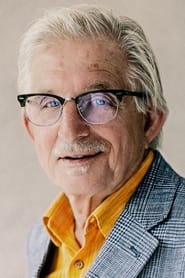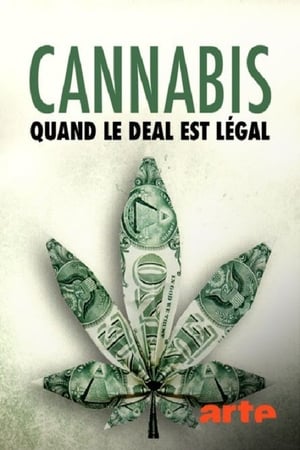

Legal weed 2(2024)
Frans Bromet follows several cannabis growers who have been selected by lottery as the first suppliers of legal cannabis. Sequel to the 2021 documentary 'Legal Weed'. Ten growers have been selected by draw as the first legal cannabis growers for an experiment that would last four years. These are large companies where a lot of money is spent to enable large-scale production of cannabis. But the actual experiment still hasn't been fully rolled out. Only in a few cities is legal cannabis available in coffee shops. The biggest problems that growers and sellers face are supply stocks and the complexity of the track and trace system. Every movement of the weed must be registered. And that is almost impossible with a failing computer system. The future of the experiment remains highly unpredictable four years after its announcement.
Movie: Legal weed 2

Legale wiet 2
HomePage
Overview
Frans Bromet follows several cannabis growers who have been selected by lottery as the first suppliers of legal cannabis. Sequel to the 2021 documentary 'Legal Weed'. Ten growers have been selected by draw as the first legal cannabis growers for an experiment that would last four years. These are large companies where a lot of money is spent to enable large-scale production of cannabis. But the actual experiment still hasn't been fully rolled out. Only in a few cities is legal cannabis available in coffee shops. The biggest problems that growers and sellers face are supply stocks and the complexity of the track and trace system. Every movement of the weed must be registered. And that is almost impossible with a failing computer system. The future of the experiment remains highly unpredictable four years after its announcement.
Release Date
2024-06-07
Average
0
Rating:
0.0 startsTagline
Genres
Languages:
NederlandsKeywords
Similar Movies
 0.0
0.0Biden's Decision(en)
The inside story of Biden’s rise to the presidency, and the personal and political forces that shaped him and led to his dramatic decision to step aside.
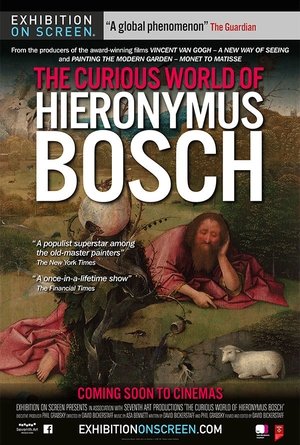 5.0
5.0The Curious World of Hieronymus Bosch(en)
Exhibition on Screen's latest release celebrates the life and masterpieces of Hieronymus Bosch brought together from around the world to his hometown in the Netherlands as a one-off exhibition. With exclusive access to the gallery and the show, this stunning film explores this mysterious, curious, medieval painter who continues to inspire today's creative geniuses. Over 420,000 people flocked to the exhibition to marvel at Bosch's bizarre creations but now, audiences can enjoy a front row seat at Bosch's extraordinary homecoming from the comfort of their own home anywhere in the world. Expert insights from curators and leading cultural critics explore the inspiration behind Bosch's strange and unsettling works. Close-up views of the curiosities allow viewers to appreciate the detail of his paintings like never before. Bosch's legendary altarpieces, which have long been divided among museums, were brought back together for the exhibition and feature in the film.
 7.1
7.1Fahrenheit 9/11(en)
Michael Moore's view on how the Bush administration allegedly used the tragic events on 9/11 to push forward its agenda for unjust wars in Afghanistan and Iraq.
 7.1
7.1Unrest(en)
When Harvard PhD student Jennifer Brea is struck down at 28 by a fever that leaves her bedridden, doctors tell her it’s "all in her head." Determined to live, she sets out on a virtual journey to document her story—and four other families' stories—fighting a disease medicine forgot.
 0.0
0.0Inside the Russian Info War Machine(fr)
Acclaimed journalist Paul Moreira investigates how Russia manipulates public opinion, undermines democratic governments and attempts to alter world events. The public face of foreign policy: the state news channels, Sputnik and Russia Today. But working in the shadows is the hidden part: the hackers and trolls pushing the Russian agenda - The Russians know that public perception of their country has reached a new low. Russophobia is massive. Their message is tainted with illegitimacy. But how does the Russian information war machine work?
 0.0
0.0Rietveld Houses: A piece of furniture to live in(nl)
In 2024, the iconic Rietveld Schröder House in Utrecht will celebrate its 100th anniversary. Gerrit Rietveld designed and built the house in close collaboration with his secret lover and creative partner Truus Schröder. Rietveld himself did not build his houses for eternity; he thought a life cycle of 50 years was sufficient. But the current owners of houses designed by Rietveld think differently about this. They pull out all the stops to renovate and preserve their Rietveld houses.
 0.0
0.0Eindeloos Gepest - Het Verhaal van Nora, Tren en Anne-Ruth(nl)
Three young people look back on their plague past and the dark valley in which they ended up. They dare to talk openly about how they found the resilience to turn their lives around.
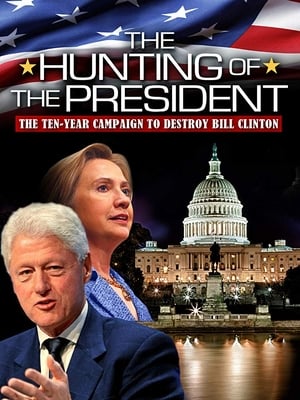 5.8
5.8The Hunting of the President(en)
Previously unreleased material outlines the campaign against Bill Clinton's presidency, from his days in Arkansas up to his impeachment trial.
 6.0
6.0World War C(nl)
It's war. War against an invisible enemy that is not as deadly as we are told. The world is changing rapidly. Disproportionate measures are taken worldwide that disrupt society as a whole. A dichotomy in society forced vaccinations and restrictions on freedom. Have we had the worst? Or is there something more disturbing to awaiting us.
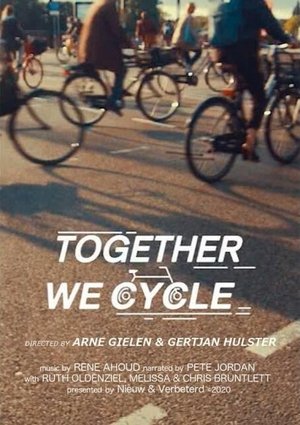 0.0
0.0Together We Cycle(en)
The film Together we cycle investigates the critical events that has led to the revival of the Dutch cycling culture. For most people, cycling in the Netherlands, seems a natural phenomenon. However, until the 1970s the development of mobility in the Netherlands followed trents across the globe. The bicycle had had its day, and the future belonged to the car. The only thing that had to be done was to adapt cities to the influx of cars. Then Dutch society took a different turn. Against all odds people kept on cycling. The question why this happened in the Netherlands, has not an easy answer. There are many factors, events and circumstances that worked together, both socially and policy-wise. In Together we cycle, key players tell the story of the bumpy road which led to the current state. Where cycling is an obvious choice for most citizens.
 0.0
0.0Enkeltje Vrijheid(nl)
Before the eyes of the Sudanese Ahmed (25), the war broke out in full force. He decides to flee on foot to the Netherlands alone, to be able to live there in freedom. This documentary shows part of his arduous journey: from the Italian Alps to Ter Apel.
 5.5
5.5The Bubble(en)
Diving deep into the true causes of the Great Recession, the financial crisis of the 2010s, renowned economists, investors and business leaders explain what America is facing if we don't learn from our past mistakes. Is the economy really improving or are we just blowing up another Bubble?
 7.3
7.3Money as Debt(en)
Paul Grignon's 47-minute animated presentation of "Money as Debt" tells in very simple and effective graphic terms what money is and how it is being created
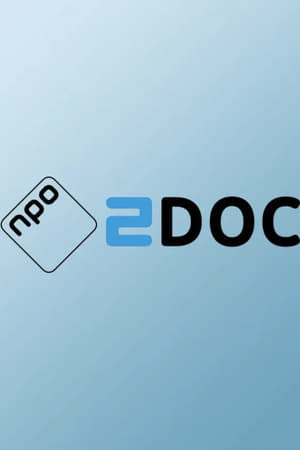 0.0
0.02Doc: What Are We Doing?(nl)
In 2022, 92% of those affected encountered aggression or violence. Frans Bromet portrays six influences who encounter violence while carrying out their work. The violence with which the actual consequences are, leaves personal physical, especially mental, traces.
 7.3
7.3Punks(nl)
The parents are at their wits’ end, so a temporary supervision order is the last hope for a group of teenagers in Punks. Now, on a remote farm in France, they’re going to have to get their lives back on track, with the help of a counselor. If they want any chance of a happy life, they need to engage in some frank and painful conversations. Mitchel has to find a way to get along with his father, but maybe too much has already happened since his mother died. Jahlano is already at the next stage: he’s no longer allowed to live with his mother, and needs to get over the disappointment. Mike, meanwhile, is struggling with his image as a boy who’s “got a screw loose.” Filmed in constant close-up by director Maasja Ooms, the teenagers try to tame their demons with music and therapy, but problems from the past keep resurfacing. In this intimate and sincere portrait, these troubled kids show us their most vulnerable sides.
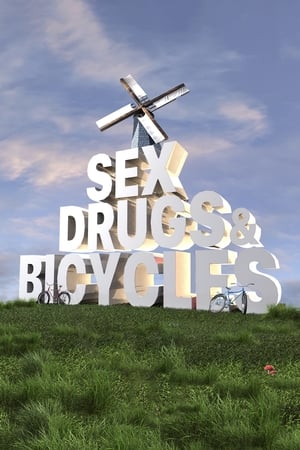 7.0
7.0Sex, Drugs & Bicycles(en)
The documentary that answers the question: is having month-long double paid vacations, no fear of homelessness, and universal health care the nightmare we've been warned about? The answer may surprise you.
Aan ons den arbeid(en)
Documentary that shows the changing attitude towards immigrant labor in The Netherlands. The documentary follows three immigrants that arrived in Holland 30 years ago to work in a bakery.
Democracy Is ...(en)
The film is a controversy on democracy. Is our society really democratic? Can everyone be part of it? Or is the act of being part in democracy dependent to the access on technology, progression or any resources of information, as philosophers like Paul Virilio or Jean Baudrillard already claimed?
